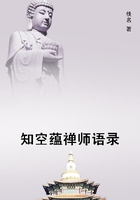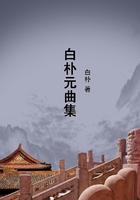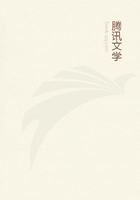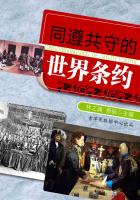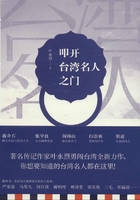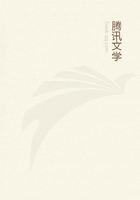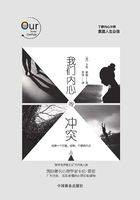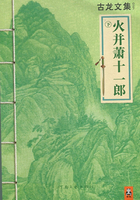INDUSTRIAL AMERICA AT THE END OF THE CIVIL WAR
A comprehensive survey of the United States, at the end of the Civil War, would reveal a state of society which bears little resemblance to that of today.Almost all those commonplace fundamentals of existence, the things that contribute to our bodily comfort while they vex us with economic and political problems, had not yet made their appearance.The America of Civil War days was a country without transcontinental railroads, without telephones, without European cables, or wireless stations, or automobiles, or electric lights, or sky-scrapers, or million-dollar hotels, or trolley cars, or a thousand other contrivances that today supply the conveniences and comforts of what we call our American civilization.The cities of that period, with their unsewered and unpaved streets, their dingy, flickering gaslights, their ambling horse-cars, and their hideous slums, seemed appropriate settings for the unformed social life and the rough-and-ready political methods of American democracy.
The railroads, with their fragile iron rails, their little wheezy locomotives, their wooden bridges, their unheated coaches, and their kerosene lamps, fairly typified the prevailing frontier business and economic organization.But only by talking with the business leaders of that time could we have understood the changes that have taken place in fifty years.For the most part we speak a business language which our fathers and grandfathers would not have comprehended.The word "trust" had not become a part of their vocabulary; "restraint of trade" was a phrase which only the antiquarian lawyer could have interpreted;"interlocking directorates," "holding companies," "subsidiaries,""underwriting syndicates," and "community of interest"--all this jargon of modern business would have signified nothing to our immediate ancestors.Our nation of 1865 was a nation of farmers, city artisans, and industrious, independent business men, and small-scale manufacturers.Millionaires, though they were not unknown, did not swarm all over the land.Luxury, though it had made great progress in the latter years of the war, had not become the American standard of well-being.The industrial story of the United States in the last fifty years is the story of the most amazing economic transformation that the world has ever known; a change which is fitly typified in the evolution of the independent oil driller of western Pennsylvania into the Standard Oil Company, and of the ancient open air forge on the banks of the Allegheny into the United States Steel Corporation.
The slow, unceasing ages had been accumulating a priceless inheritance for the American people.Nearly all of their natural resources, in 1865, were still lying fallow, and even undiscovered in many instances.Americans had begun, it is true, to exploit their more obvious, external wealth, their forests and their land; the first had made them one of the world's two greatest shipbuilding nations, while the second had furnished a large part of the resources that had enabled the Federal Government to fight what was, up to that time, the greatest war in history.But the extensive prairie plains whose settlement was to follow the railroad extensions of the sixties and the seventies--Kansas, Nebraska, Iowa, Oklahoma, Minnesota, the Dakotas--had been only slightly penetrated.This region, with a rainfall not too abundant and not too scanty, with a cultivable soil extending from eight inches to twenty feet under the ground, with hardly a rock in its whole extent, with scarcely a tree, except where it bordered on the streams, has been pronounced by competent scientists the finest farming country to which man has ever set the plow.Our mineral wealth was likewise lying everywhere ready to the uses of the new generation.The United States now supplies the world with half its copper, but in 1865it was importing a considerable part of its own supply.It was not till 1859 that the first "oil gusher" of western Pennsylvania opened up an entirely new source of wealth.Though we had the largest coal deposits known to geologists, we were bringing large supplies of this indispensable necessity from Nova Scotia.It has been said that coal and iron are the two mineral products that have chiefly affected modern civilization.Certainly the nations that have made the greatest progress industrially and commercially--England, Germany, America--are the three that possess these minerals in largest amount.From sixty to seventy per cent of all the known coal deposits in the world were located in our national domain.Nature had given no other nation anything even remotely comparable to the four hundred and eighty square miles of anthracite in western Pennsylvania and West Virginia.
Enormous fields of bituminous lay in those Appalachian ranges extending from Pennsylvania to Alabama, in Michigan, in the Rocky Mountains, and in the Pacific regions.In speaking of our iron it is necessary to use terms that are even more extravagant.From colonial times Americans had worked the iron ore plentifully scattered along the Atlantic coast, but the greatest field of all, that in Minnesota, had not been scratched.From the settlement of the country up to 1869 it had mined only 50,000,000tons of iron ore, while up to 1910 we had produced 685,000,000tons.The streams and waterfalls that, in the next sixty years, were to furnish the power that would light our cities, propel our street-cars, drive our transcontinental trains across the mountains, and perform numerous domestic services, were running their useless courses to the sea.
Industrial America is a product of the decades succeeding the Civil War; yet even in 1865 we were a large manufacturing nation.

